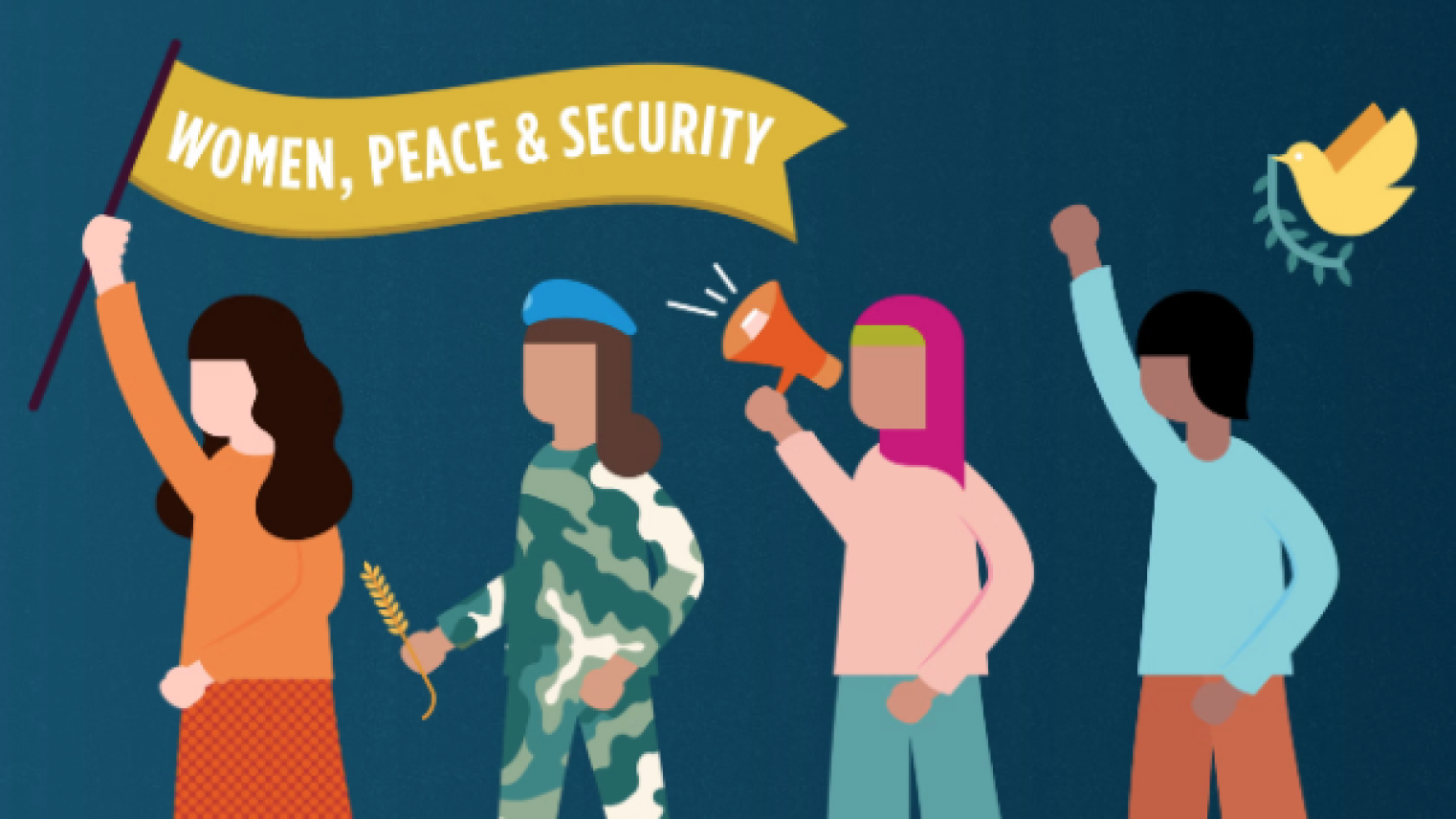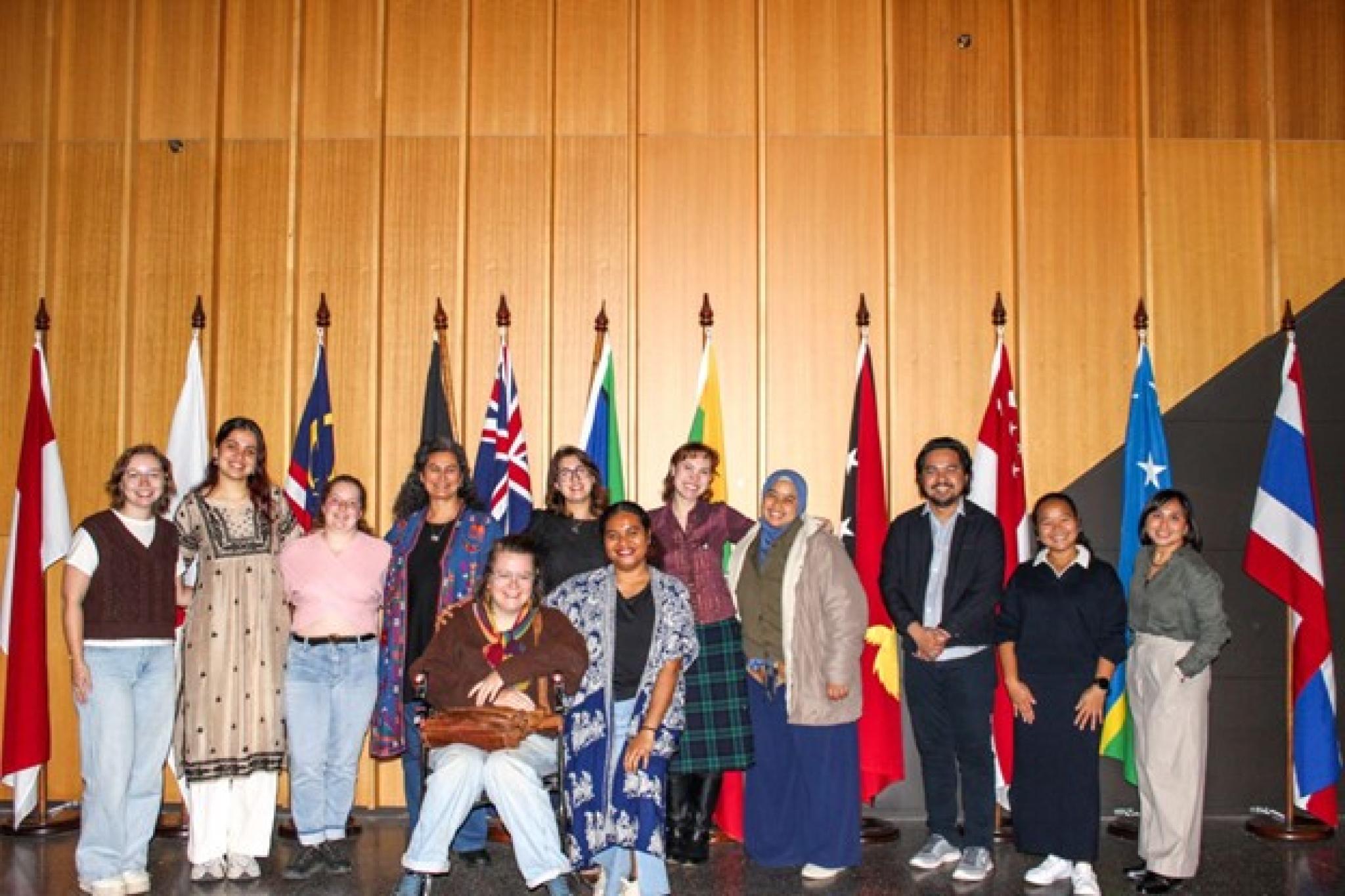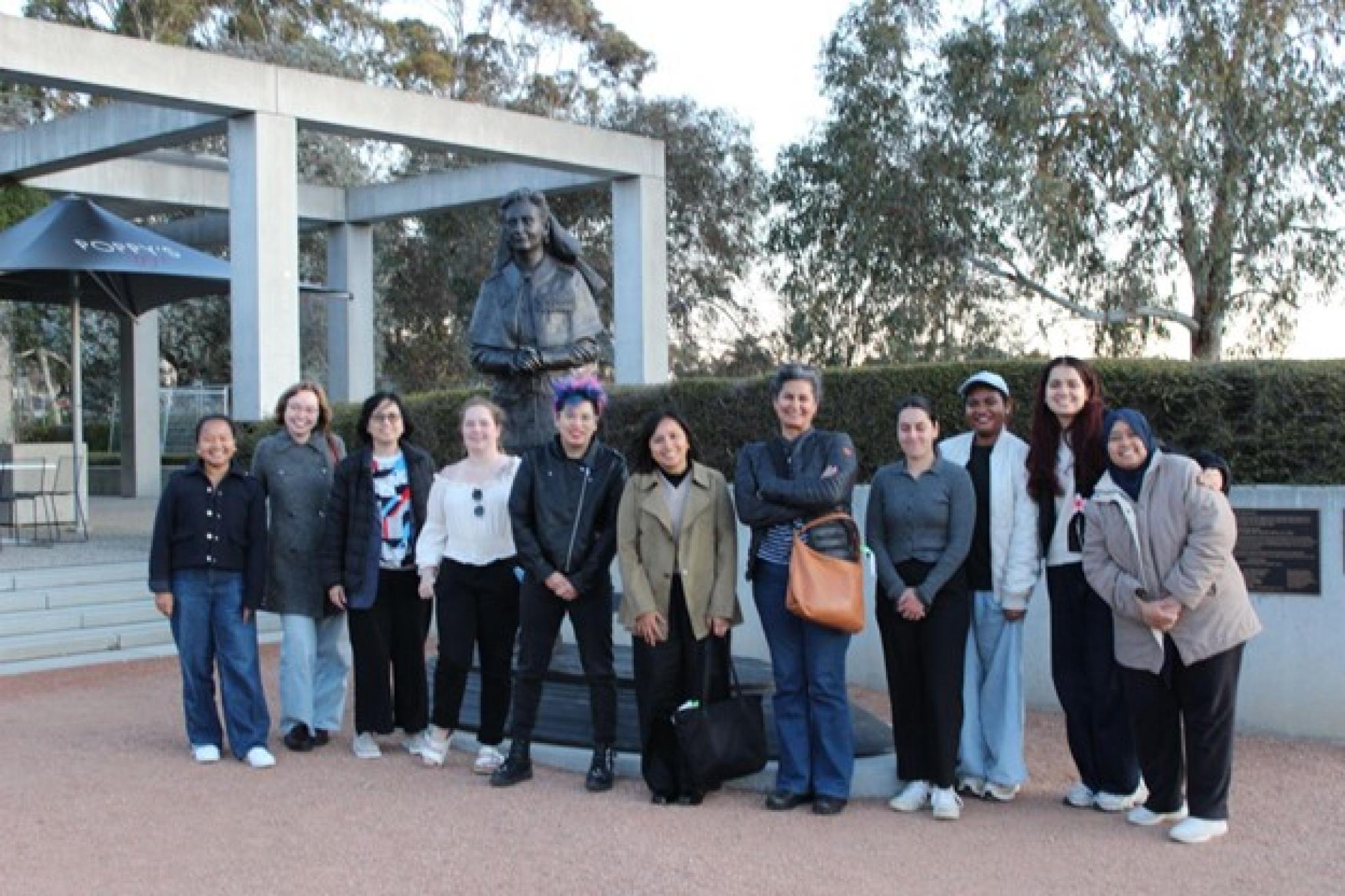Reflecting on 25 Years of the Women, Peace and Security Agenda and the Future Advocacy

As the Women, Peace and Security agenda marks its 25th anniversary, two students in INTR8077 look back on what they’ve learned this year and how the course has shaped their understanding of its achievements and ongoing challenges. Drawing on their own experiences, recent research, and the student-led symposium, Ellysabeth Lelan & Kinneret Pezarkar offer reflections on how this milestone is shaping the next chapter of advocacy.
INTR8077 – Women, Peace and Security at the Coral Bell School is a course we were eager to undertake. I (Ellysabeth) have spent several years collaborating with an NGO in Papua, Indonesia, engaging with Indigenous communities on health and aid initiatives. While rewarding, I often sensed a disconnect between this fieldwork and the way “security” is discussed in academic settings, where it is typically associated with the military. My experiences abroad and at ANU deepened my interest in Indigenous rights, climate change, and their gendered impacts, particularly on women in Papua. I (Kinneret) have worked with women survivors of trafficking and witnessed how women’s voices are erased during war, especially during the 2023 conflict in Israel. I’ve often seen feminism treated as an afterthought in peace studies. My research in PNG confirmed how gender and climate intersect in shaping insecurity. From India to PNG, from aid work to academia, we’ve both seen how women are on the frontlines of crises yet excluded from peace talks. This course brought together our experiences, research, and hopes for inclusive peace.
Studying courses on Women, Peace, and Security this year feels different from previous years because 2025 marks the 25th anniversary of the Women, Peace, and Security agenda. This milestone encourages us to reflect on how far we’ve come and how much still needs to be achieved. Resolution 1325 on Women, Peace, and Security was adopted by the United Nations Security Council in 2000 and emphasises the essential role of women in peace and security, ranging from conflict prevention and participation in peace negotiations to peacekeeping, humanitarian efforts, and peacebuilding. It advocates for women’s equal involvement and protection from violence in conflict zones, ensuring their voices are heard everywhere. As part of INTR8077, we visited the Australian War Memorial and participated in a photo hunt for images that portray protection, sacrifice, silence, and hope. Reflecting on women and war memorials, we noticed how women are mostly portrayed as nurses, caring for soldiers, a reflection of how women’s wartime roles are often confined to care and support, rather than being recognised as central to resistance, peacebuilding, or survival. Men, by contrast, are celebrated as protectors and heroes. At the Last Post Ceremony, we were struck by the solemn beauty but also unsettled by the way it performed the state’s narrative. War appeared sanitised, heroic and devoid of trauma. The absence of women’s stories, the suffering of civilians, particularly Indigenous, migrant or displaced communities and the silence around gendered violence made the ritual feel curated, with grief replaced by grandeur. It left us questioning whether inviting women into militarised institutions signifies progress or merely expands who can actually serve the machinery of war. Can peace ever be genuinely built if the only stories honoured are those that uphold the state, while silencing women, civilians and those on the margins of conflict?
The INTR8077 symposium (16–19 September 2025) explored Women, Peace, and Security (WPS) through multiple lenses, ranging from violent extremism and institutional inclusion to climate change, youth, and Indigenous rights. A recurring theme was the tension between tokenistic inclusion in militarised or formal systems and the transformative potential of grassroots, community-led resistance. For Ellysabeth, hearing from Indigenous women leading ecological movements reinforced the idea that peace is practised through care, storytelling, and land defence, not just formal policy. For Kinneret, the most resonant theme came from the abolitionist critiques of carceral institutions, which reframed policing and prisons not as broken systems but as working precisely as designed to uphold colonialism, racism, patriarchy and capitalism. This challenged us to reimagine security beyond control as care, redistribution, and collective safety. Coming from a postcolonial context, such as India and Indonesia, and having worked in community-led health and aid initiatives, we saw firsthand the impact of systemic violence on women. This critique felt particularly urgent. We were left wondering whether the WPS agenda still retains its radical, feminist roots or whether it has been co-opted by the very structures it once sought to transform. The first day made clear that true peace cannot be achieved through tokenistic inclusion alone but must centre on structural justice, local agency, and intersectional resistance.
The final two days of the symposium deepened our understanding of feminist peacebuilding by centring intersectionality, Indigenous resistance, and the emotional and cultural politics of justice. One theme that resonated with both of us was the idea of epistemic justice, not simply adding marginalised voices into the WPS agenda, but rethinking who defines peace and through which frameworks. The third day engaged with the land rights movement in Papua, Indonesia, and witchcraft accusations framed as cultural rather than security issues, reminding us of how the lived experiences of Indigenous women are oftentimes excluded from formal agendas. These women are not passive recipients of peace but active practitioners of it, through storytelling, land defence and community care. Their struggles challenge the assumption that peacebuilding begins in policy rooms; instead, it is rooted in memory, resistance, and ways of knowing that are non-Western, non-elite, non-linear, and non-institutional. If the WPS agenda is to remain relevant, it must be transformed, not just expanded. One of the most personal moments for us came during the poetry project by Afghan women, where resistance unfolded not through speeches or protests but in verse, metaphor, and memory. Coming from a postcolonial context where resistance can be silenced or punished, this was a powerful reminder that not all political acts are loud; sometimes resistance is breath, it is writing. These poetic archives demand recognition not as emotional extras, but as political tools. As future practitioners and researchers, we are left asking, how can we honour these alternative expressions of justice in a system that privileges what can be named, counted and institutionalised? For us, feminist peacebuilding means listening deeply to words, to silences and to the histories that survive in fragments.
In conclusion, this course not only expanded our academic understanding of the WPS agenda but also transformed how we view power, politics, peacebuilding and resistance. When we entered the classroom, we expected to learn policy and peacebuilding; what we did not anticipate was how deeply the course would challenge us to reconsider the very frameworks we had been taught to trust. Marking the 25th anniversary of the WPS agenda heightened our awareness of its real-time significance. The resolution pledged to centre women’s voices in global security and peacebuilding processes, but a quarter-century in, it is clear that representation alone is not enough. From war memorials that depict men as heroes and women as carergivers to institutions that invite women in only to silence them once they arrive, the gap between the agenda and its realisation remains wide. This course, through critical readings, reflective assignments, the War Memorial visit and the symposium, offered us a space to explore not just what WPS has achieved but what it still fails to imagine. We encountered stories of Indigenous women defending land in Papua, Afghan women writing poetry as justice and grassroots activists resisting from the margins. These reminded us that peace does not always emerge from policy; more often than not, it is born through collective action, memory, refusal and the courage to envision otherwise. As we continue our academic journeys, we carry with us a deeper understanding of the limitations of institutional frameworks and a renewed commitment to justice, one that listens not only to those who speak in resolutions but also to those who speak in resistance.
Written by Ellysabeth Lelan & Kinneret Pezarkar.

